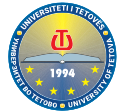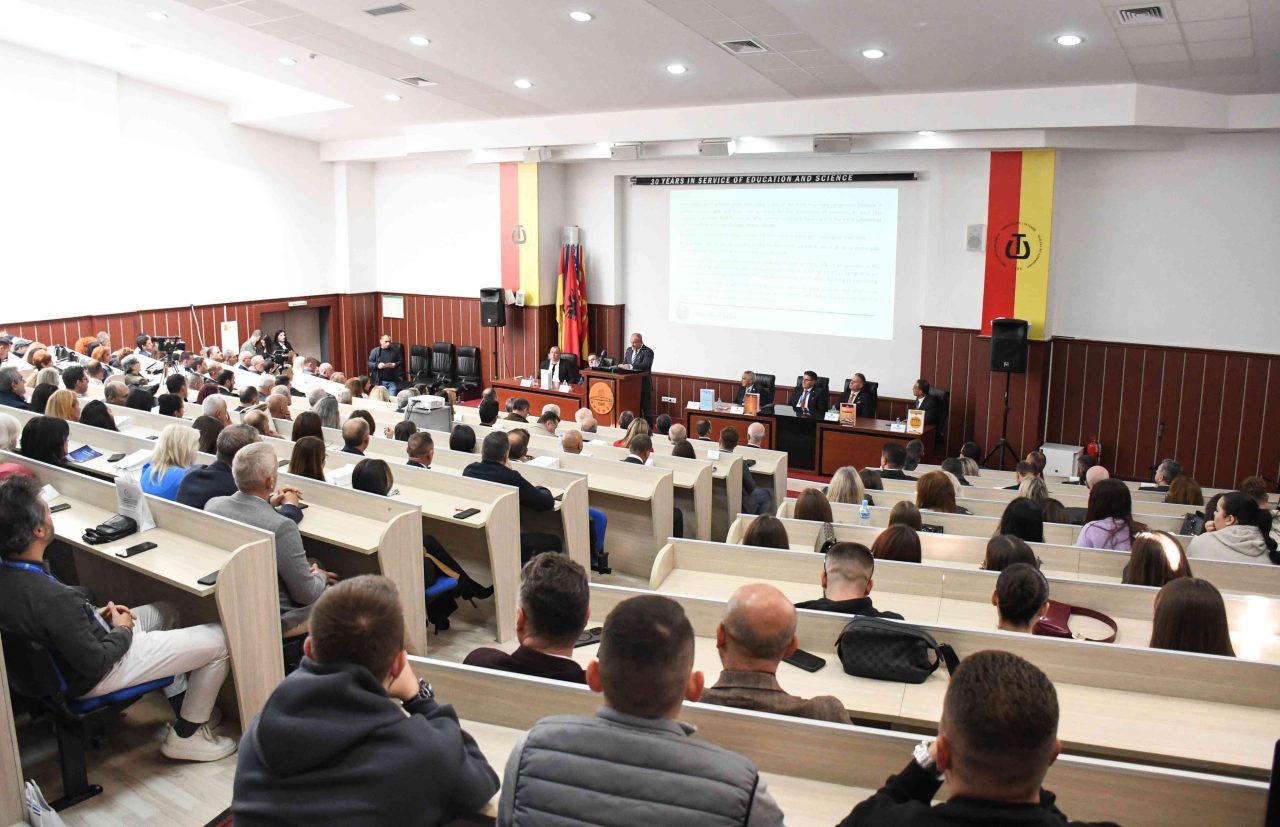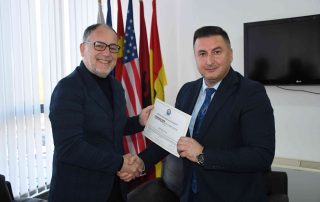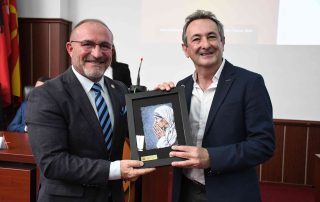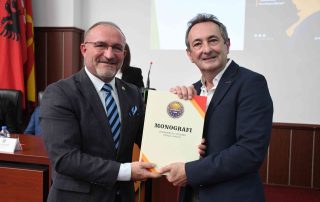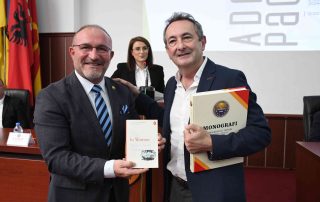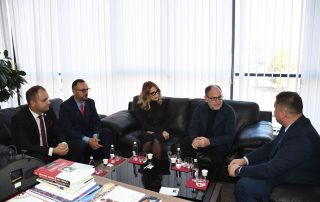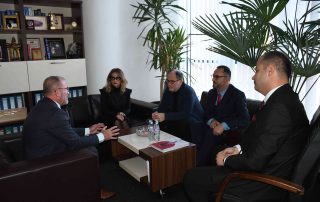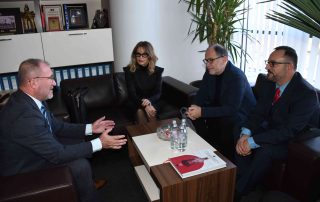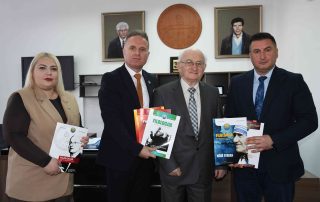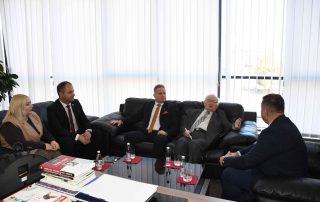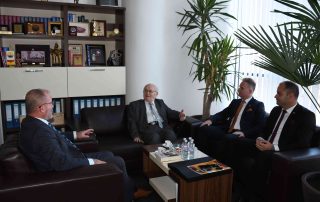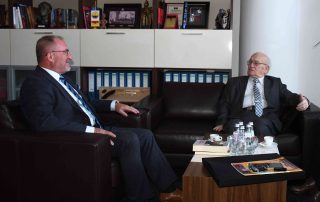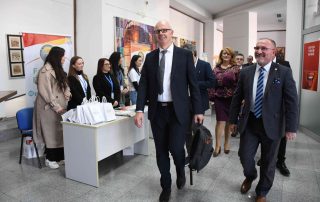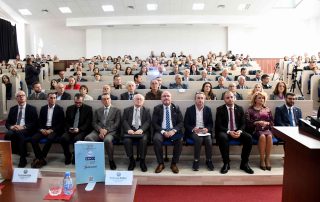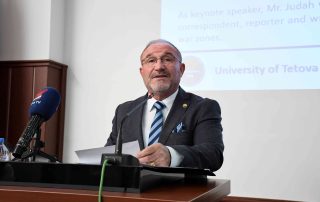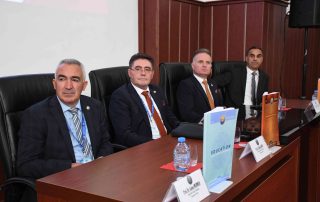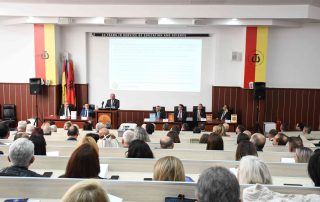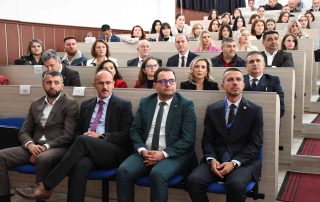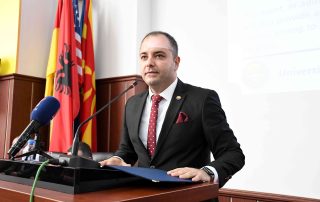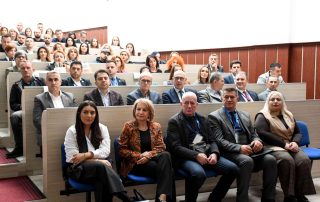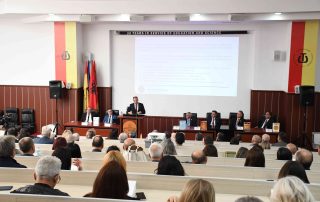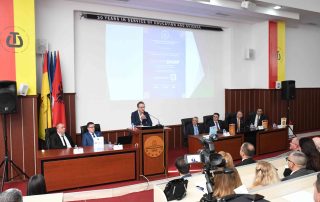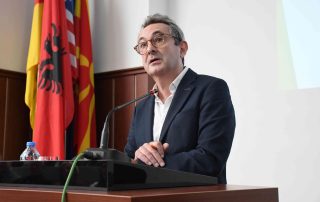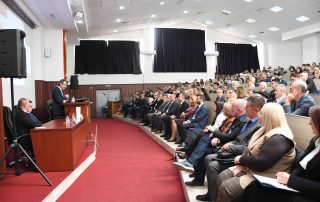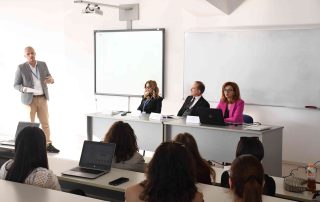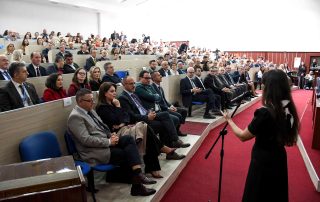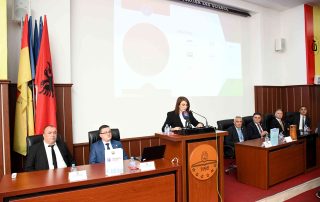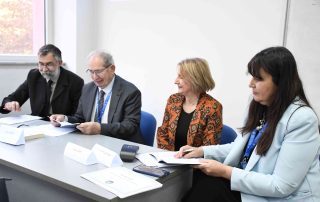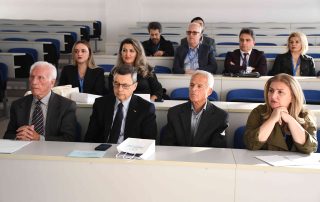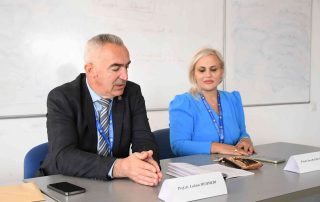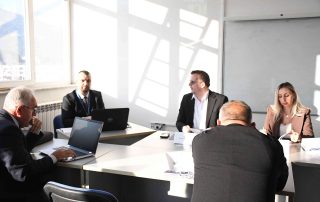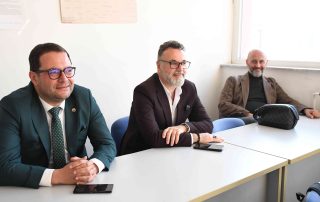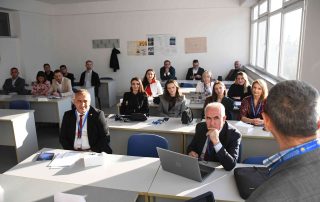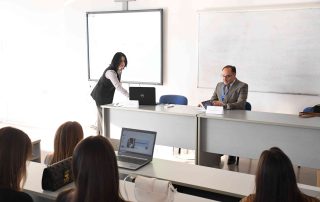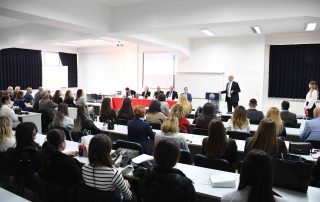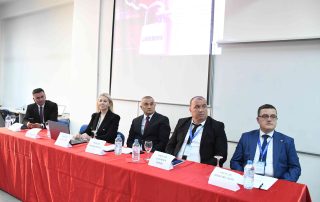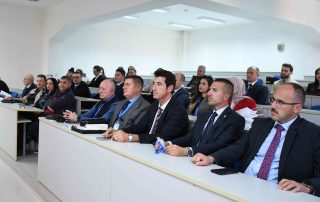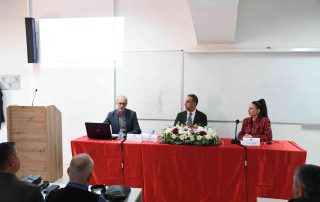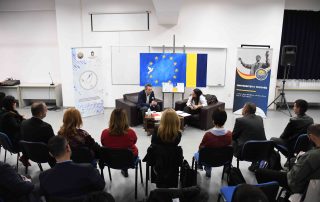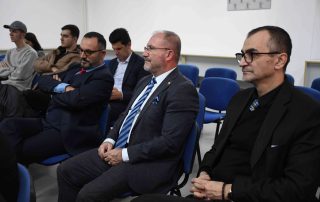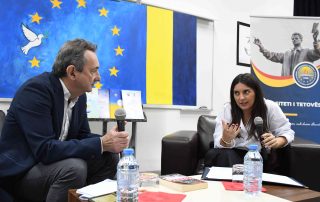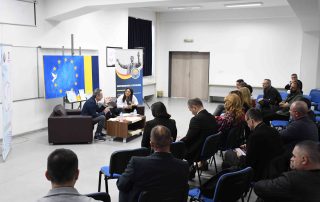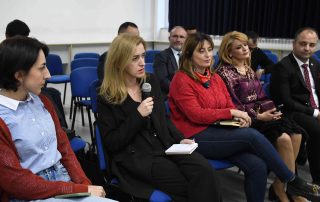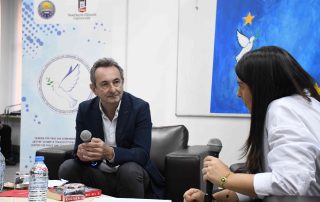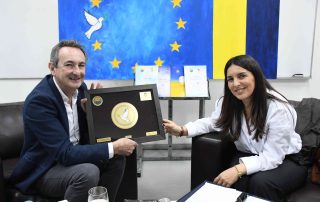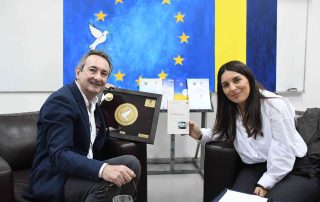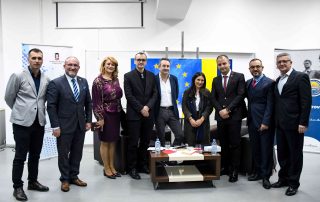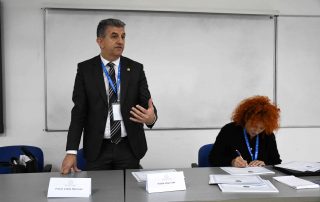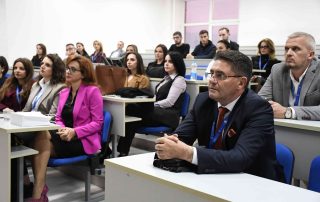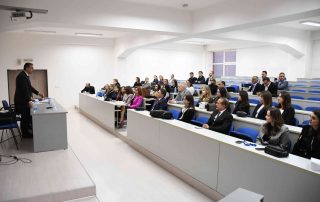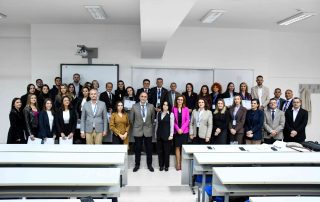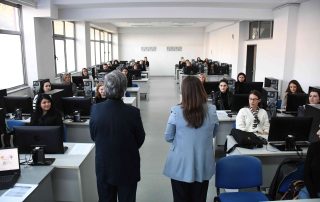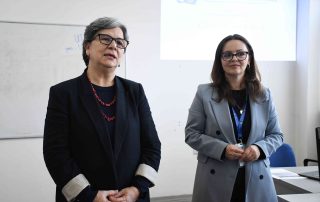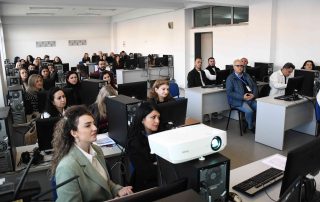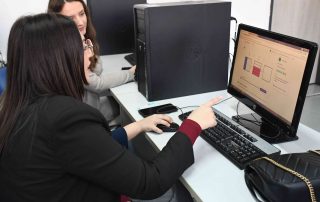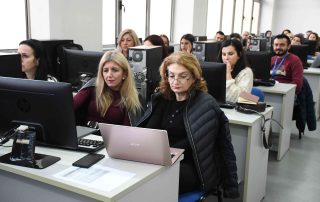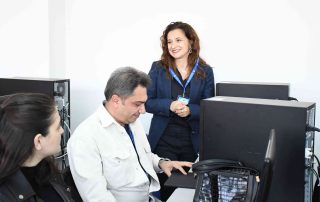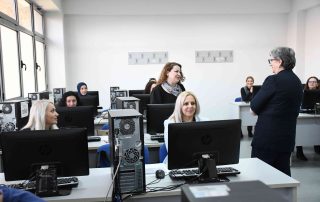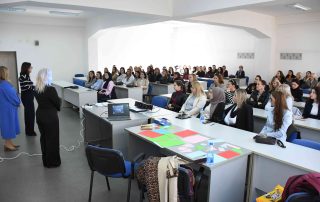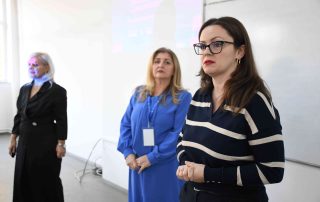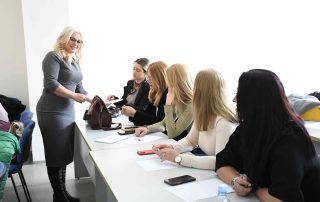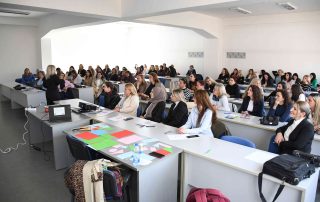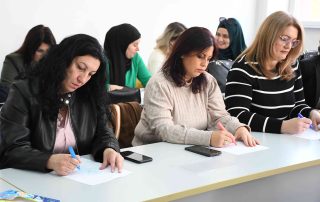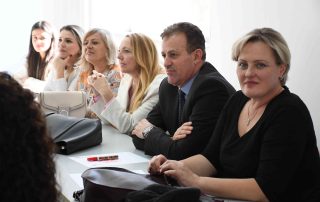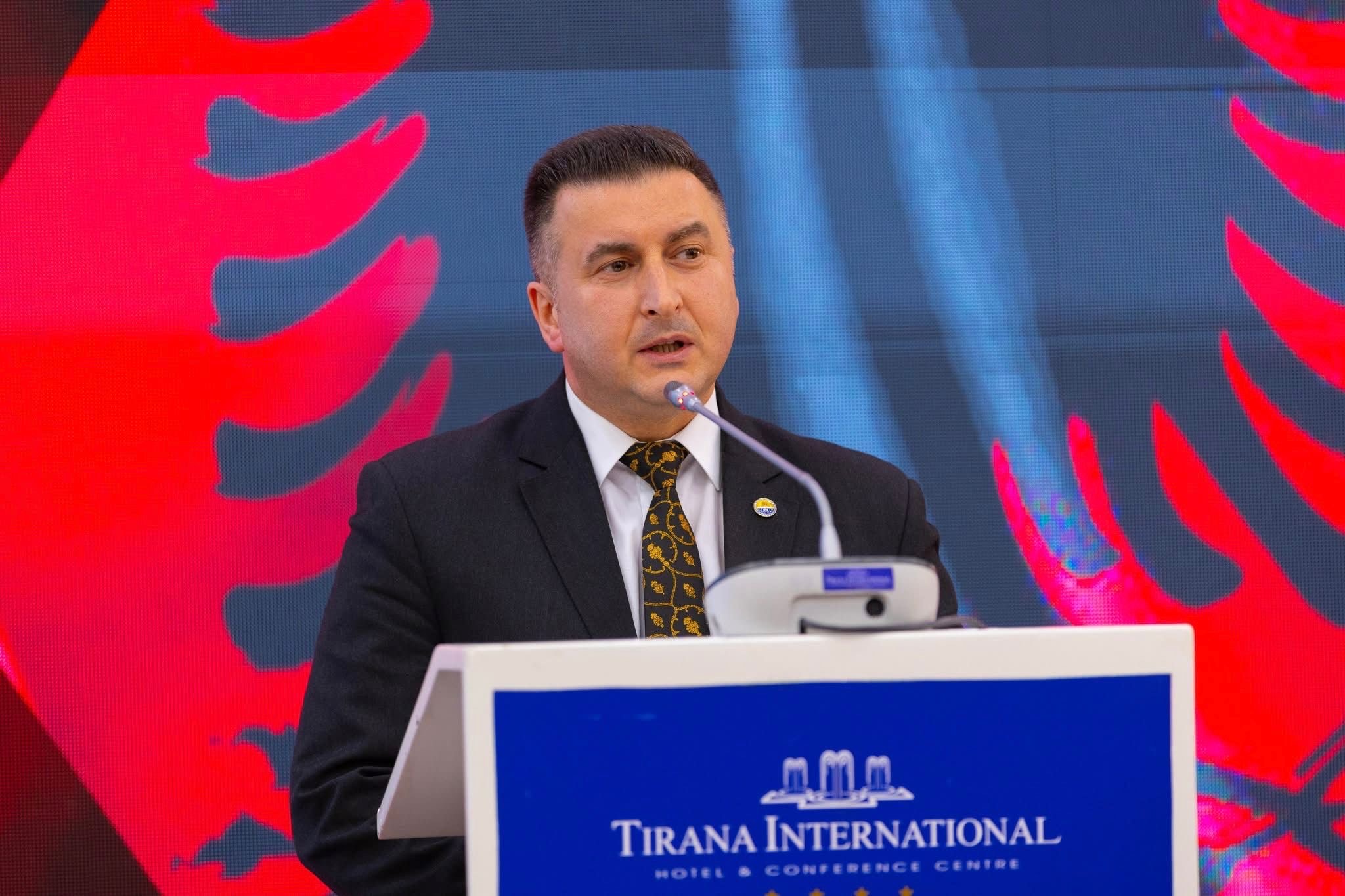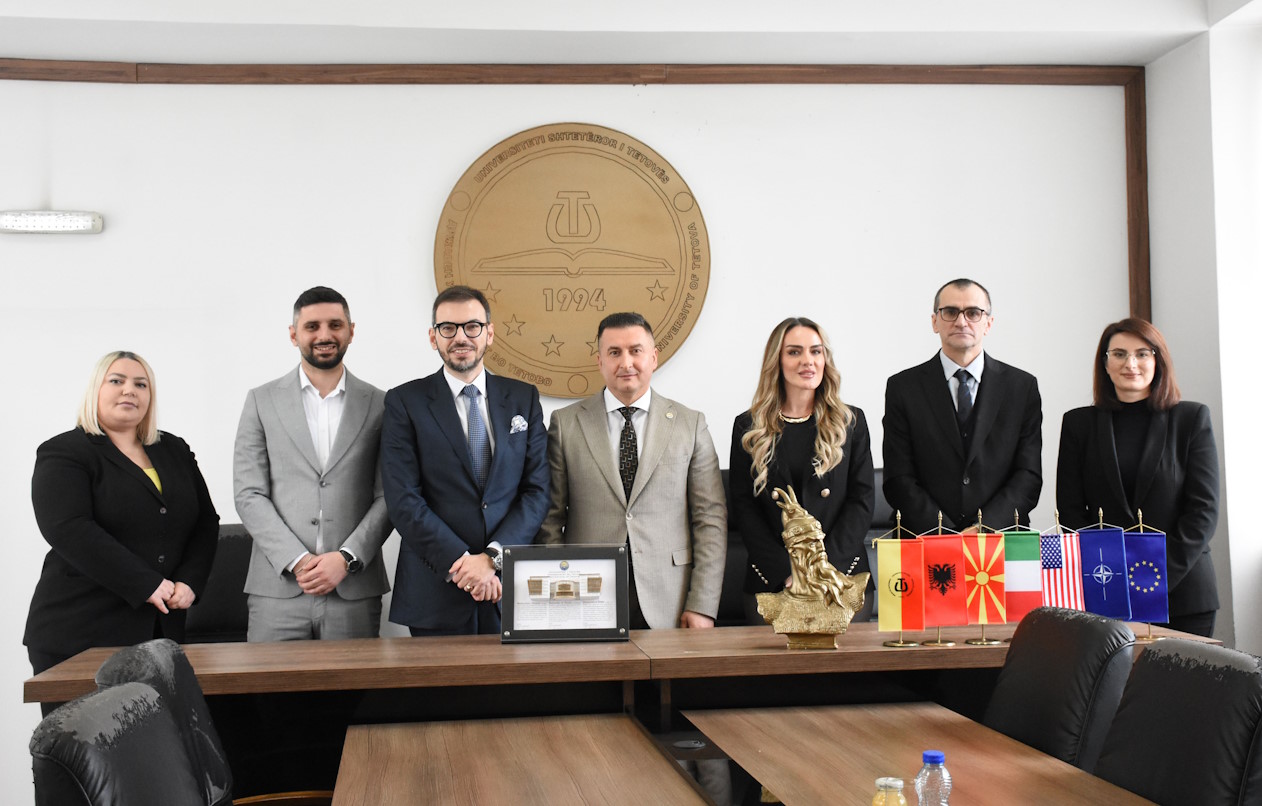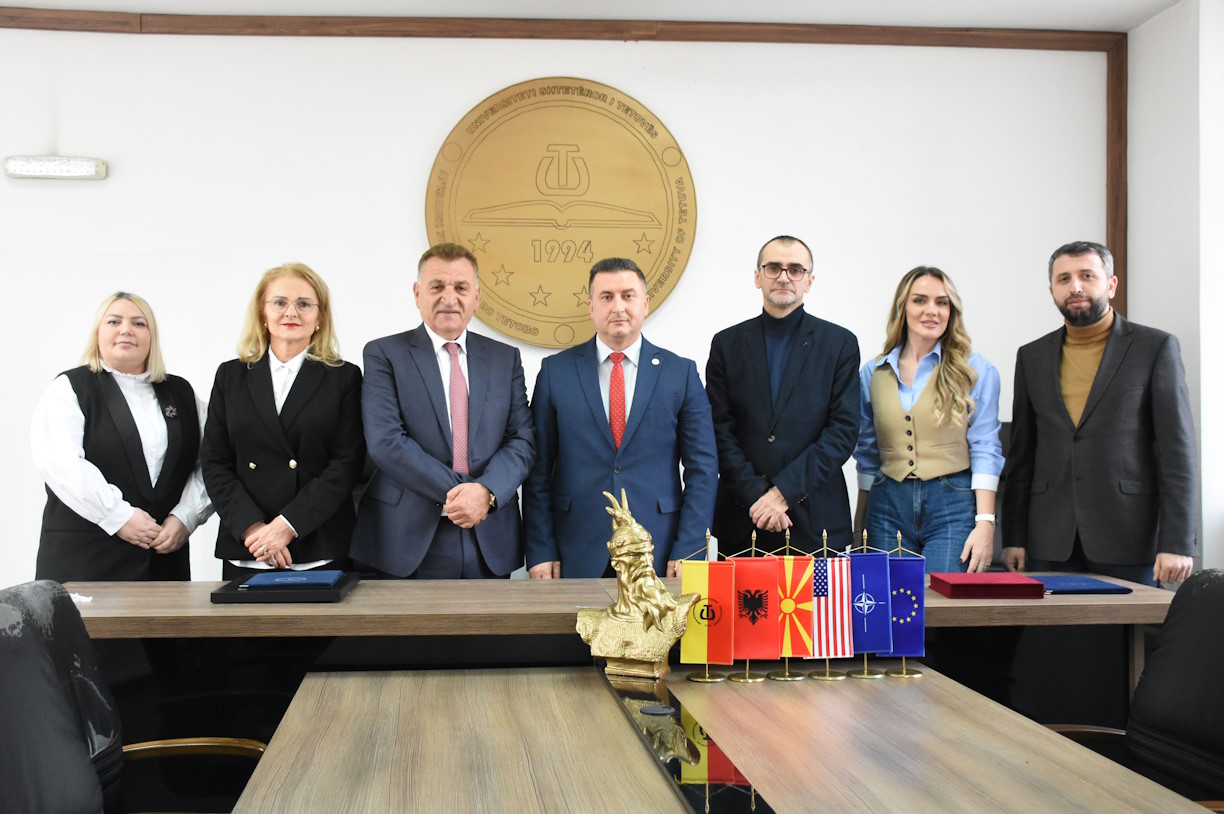November 6, 2024 | The International Congress on Human Social Sciences, and Arts began at the University of Tetova. More than 382 scientific workers from 27 different universities and research institutions are participating in this congress this year, who during the next two days will present papers and articulate their ideas on certain topics.
On behalf of the University of Tetova, the attendees in the auditorium were welcomed by the President of the Senate of the University of Tetova, Prof. Dr. Vullnet Ameti, who described this congress as a very important event for the University of Tetova and for all those who believe in the power of the values of knowledge, free thought, and international cooperation. “This congress is proof of how the sciences interact and that knowledge, science, and thought are not limited to one field or discipline. When they interact, we witness how their power multiplies. In this time when the world faces great global challenges—whether in the field of the environment, social inequality, wars, fundamental changes in the geopolitical aspect, or rapidly developing technology—the role of universities goes beyond the mere dissemination of knowledge. They engage in the construction of new visions as an imperative of the time to respond to challenges, which may present opportunities for cooperation or may appear as barriers to progress. Meanwhile, the University of Tetova has shown that our mission goes beyond teaching and scientific research—we have always provided platforms and served as arenas for debates on social, human, and artistic issues. This vision has been charted, and all of you participating in this congress are part of this mission. I hope this congress will be an inspiring platform for exchanging ideas, expanding our horizons, and building bridges of cooperation between academics and professionals from all disciplines”, said Prof. Dr. Vullnet Ameti.
The Vice-Rector for Science at the University of Tetova, Prof. Dr. Agon Memeti, in his speech speaking about the importance and topics that will be addressed at this scientific event, expressed that the vision of the congress is to promote the idea that universities serve not only as places of education and scientific research but also as leaders of social progress. By prioritizing this objective, this event includes five main conferences that interact in a logical relationship with each other and are coherent with the themes they outline, as follows: •𝟗𝐭𝐡 𝐈𝐧𝐭𝐞𝐫𝐧𝐚𝐭𝐢𝐨𝐧𝐚𝐥 𝐒𝐜𝐢𝐞𝐧𝐭𝐢𝐟𝐢𝐜 𝐂𝐨𝐧𝐟𝐞𝐫𝐞𝐧𝐜𝐞 𝐨𝐟 𝐭𝐡𝐞 𝐅𝐚𝐜𝐮𝐥𝐭𝐲 𝐨𝐟 𝐏𝐡𝐢𝐥𝐨𝐥𝐨𝐠𝐲: Examining Ismail Kadare’s contributions to Albanian and world literature. •𝟏𝟎𝐭𝐡 𝐈𝐧𝐭𝐞𝐫𝐧𝐚𝐭𝐢𝐨𝐧𝐚𝐥 𝐒𝐜𝐢𝐞𝐧𝐭𝐢𝐟𝐢𝐜 𝐂𝐨𝐧𝐟𝐞𝐫𝐞𝐧𝐜𝐞 𝐨𝐟 𝐭𝐡𝐞 𝐅𝐚𝐜𝐮𝐥𝐭𝐲 𝐨𝐟 𝐄𝐜𝐨𝐧𝐨𝐦𝐢𝐜𝐬: Focused on analyzing supply chain disruptions caused by recent economic challenges. •𝟓𝐭𝐡 𝐈𝐧𝐭𝐞𝐫𝐧𝐚𝐭𝐢𝐨𝐧𝐚𝐥 𝐒𝐜𝐢𝐞𝐧𝐭𝐢𝐟𝐢𝐜 𝐂𝐨𝐧𝐟𝐞𝐫𝐞𝐧𝐜𝐞 𝐨𝐟 𝐭𝐡𝐞 𝐅𝐚𝐜𝐮𝐥𝐭𝐲 𝐨𝐟 𝐏𝐞𝐝𝐚𝐠𝐨𝐠𝐲: Discussing sustainable education as a cornerstone for societal development. •𝟗𝐭𝐡 𝐈𝐧𝐭𝐞𝐫𝐧𝐚𝐭𝐢𝐨𝐧𝐚𝐥 𝐒𝐜𝐢𝐞𝐧𝐭𝐢𝐟𝐢𝐜 𝐂𝐨𝐧𝐟𝐞𝐫𝐞𝐧𝐜𝐞 𝐨𝐟 𝐭𝐡𝐞 𝐅𝐚𝐜𝐮𝐥𝐭𝐲 𝐨𝐟 𝐋𝐚𝐰: Addressing themes of governance, social justice, and the rule of law. •𝟗𝐭𝐡 𝐈𝐧𝐭𝐞𝐫𝐧𝐚𝐭𝐢𝐨𝐧𝐚𝐥 𝐒𝐜𝐢𝐞𝐧𝐭𝐢𝐟𝐢𝐜 𝐂𝐨𝐧𝐟𝐞𝐫𝐞𝐧𝐜𝐞 𝐨𝐟 𝐭𝐡𝐞 𝐅𝐚𝐜𝐮𝐥𝐭𝐲 𝐨𝐟 𝐏𝐡𝐢𝐥𝐨𝐬𝐨𝐩𝐡𝐲: Exploring socio-cultural issues from both historical and contemporary perspectives. — emphasized, among other things, Prof. Dr. Agon Memeti.
In addition to the large number of scientific researchers, teaching staff, and students, the opening ceremony of the congress was attended by many other prominent figures, including the distinguished Albanologist Prof. Dr. Xhevat Lloshi, the renowned artist Adrian Paci, and the writer, political analyst, and reporter for the prestigious British publication The Economist, Mr. Tim Judah. Mr. Judah was also the keynote speaker in the auditorium, where he shared his insightful thoughts and experiences as a correspondent, reporter, and author of numerous books and articles, bringing his experiences from war zones, particularly from Ukraine and beyond. Among other topics, he addressed the following: Reporting from Ukraine: What should we know? Are we at the end of the war? What similarities and differences exist between the Balkan wars and reporting from those areas, and more.
At this congress, the University of Tetova also promoted five new publications of its scientific journals, which are valuable assets for the archives of knowledge and reflect the commitment to academic quality and innovation. These journals are:1. ECONOMIC VISION, 2. FILOLOGJIA, 3. EDUCATION, 4. JUSTICIA, 5. PHILOSOPHICA. These publications are indexed in well-known international platforms such as Google Scholar, Index Copernicus, ERIHPLUS, EBSCO, CEEOL, and MLA International Bibliography. This year, they have also been assigned DOI numbers, significantly increasing their international visibility and impact within the academic community.
This year’s congress has been supported by Arbëria Design, Ble Medica and Vezë Sharri, while in the following days many other important events will take place in the respective co-organizing faculties of this congress.
The internationally renowned artist Adrian Paci held a masterclass with the students of the Faculty of Arts
November 6, 2024 | As part of the International Congress on Human Social Sciences, and Arts, a meeting with the renowned artist Adrian Paci was organized at the Faculty of Arts.
Adrian Paci is a contemporary Albanian artist, known for his work encompassing painting, video art, sculpture, and installations. He was born in Shkodër, Albania, but later moved to Italy, where he built his international career.
Throughout his long career, Adrian Paci has created a wide range of works that focus on identity, migration, the interconnection of human experiences, and more. A condensed part of this artistic journey and experience was shared with the students and professors of the Faculty of Arts.
The Dean of the Faculty of Arts, Professor, Senad Abduli, recognizing his extraordinary influence and contribution to the world of contemporary art, thanked the artist for sharing his time and valuable experiences with our students.
The curator of the event, the Vice-Dean for Science at the Faculty of Arts, Professor, Nora Halimi, emphasized the importance of having such a distinguished artist present in our classrooms, confident that this visit would serve as an inspiration for students and be of great value to the faculty members who have long followed his work.
“For many members of the artistic community, his work has been and continues to be a source of inspiration, reflection, and often a window for a deeper understanding of everyday reality, because his creations often transcend the boundaries of individual experiences to address issues that touch us all,” she said.
During the visit to the University of Tetova, artist Adrian Paci and Prof. Xhevat Lloshi were also welcomed by the Rector, Prof. Dr. Jusuf Zejneli. The importance of collaborating with professionals from various fields to contribute to the advancement and progress of educational and scientific development was highlighted during this meeting.
The Center for Peace and Transcultural Communication organized a debate with the renowned British journalist Tim Judah
November 6, 2024 | As part of the International Congress on Human Social Sciences, and Arts, the Center for Peace and Transcultural Communication at the University of Tetova organized a public debate with the renowned British journalist and scholar Tim Judah. The debate was moderated by the director of the Center for Peace and Transcultural Communication, MSc. Donika Kamberi, and focused on the current challenges faced by Ukraine, the Western Balkans, and the region. The discussion addressed the impact of the war in Ukraine on regional stability and the role of Western Balkan countries in the global arena amid new geopolitical changes.
Tim Judah, the renowned journalist and analyst known for his insights on the Balkans and Eastern Europe, emphasized the region’s importance for Europe’s security. Judah argued that the involvement of the Western Balkans in global developments is no longer an option, but a necessity. According to him, the Western Balkans is on the front line of Western interests, and in the face of the crisis in Ukraine, the stability of these countries is crucial for the security of Europe. He also referred to the efforts of Western states to maintain balance in the region.
Meanwhile, MSc. Donika Kamberi spoke about the challenges faced by the Western Balkan countries due to their proximity to Ukraine. She emphasized that for these countries, instability could lead to further political polarization and create challenges for their integration into the European Union. According to her, the impact of the war in Ukraine is not only military but also affects the economies and social structures of our region.
The discussion also focused on the role of major powers such as Russia and the United States in the region, especially after Donald Trump was declared President of the United States, and how his political discourse might evolve in the future. In conclusion, the attendees had the opportunity to debate the respective topics that were discussed during the event.
